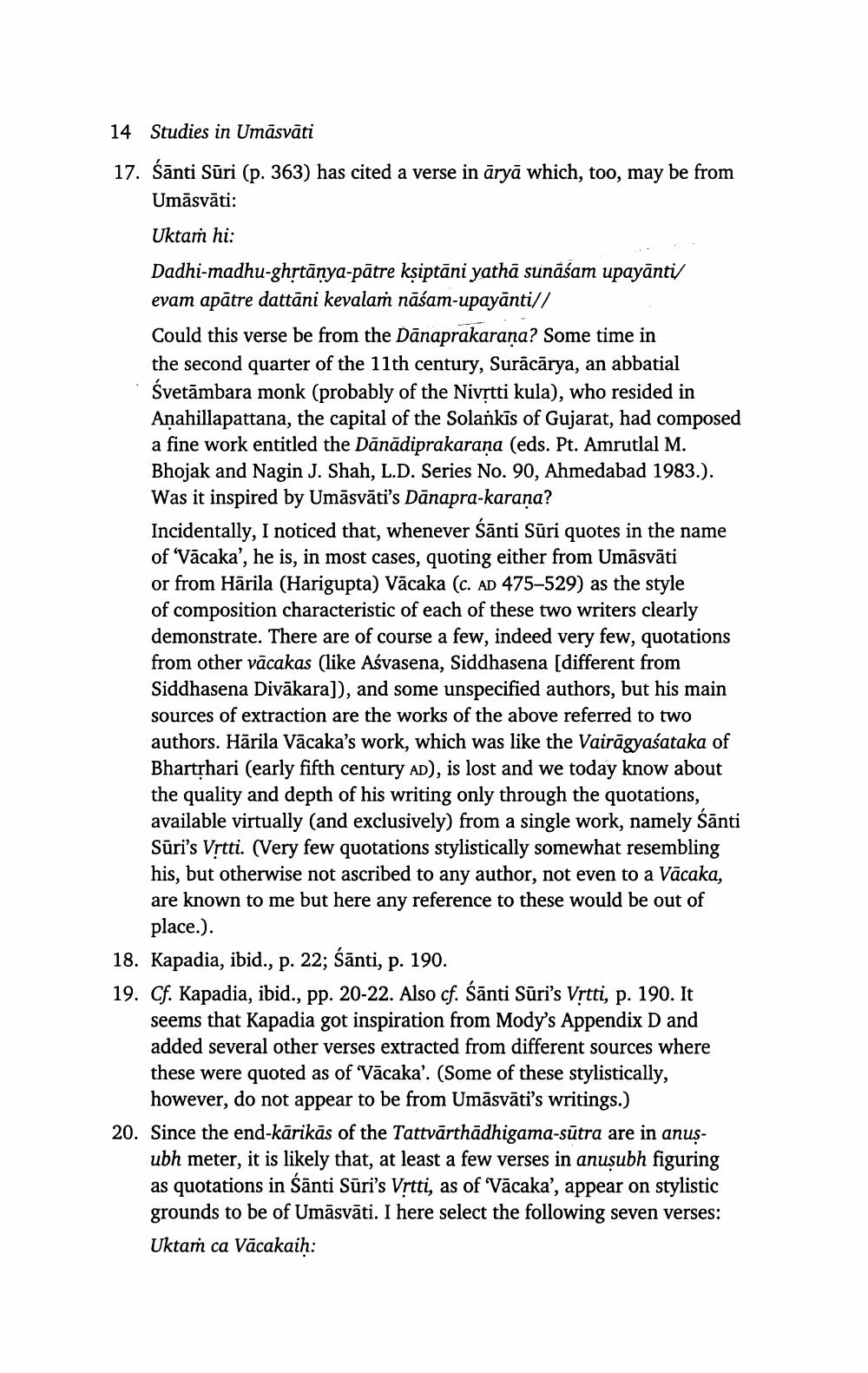________________
14
Studies in Umāsvāti
17. śānti Sūri (p. 363) has cited a verse in āryā which, too, may be from
Umāsvāti: Uktam hi: Dadhi-madhu-ghrtānya-pātre ksiptāni yathā sunāśam upayānti/ evam apātre dattāni kevalam nāśam-upayānti// Could this verse be from the Dānaprakarana? Some time in the second quarter of the 11th century, Surācārya, an abbatial Svetāmbara monk (probably of the Nivrtti kula), who resided in Anahillapattana, the capital of the Solankīs of Gujarat, had composed a fine work entitled the Dānādiprakarana (eds. Pt. Amrutlal M. Bhojak and Nagin J. Shah, L.D. Series No. 90, Ahmedabad 1983.). Was it inspired by Umāsvāti's Dānapra-karana? Incidentally, I noticed that, whenever śānti Sūri quotes in the name of 'Vācaka', he is, in most cases, quoting either from Umāsvāti or from Hārila (Harigupta) Vācaka (C. AD 475-529) as the style of composition characteristic of each of these two writers clearly demonstrate. There are of course a few, indeed very few, quotations from other vācakas (like Aśvasena, Siddhasena (different from Siddhasena Divākara]), and some unspecified authors, but his main sources of extraction are the works of the above referred to two authors. Hārila Vācaka's work, which was like the Vairāgyaśataka of Bharthari (early fifth century AD), is lost and we today know about the quality and depth of his writing only through the quotations, available virtually (and exclusively) from a single work, namely Santi Sūri's Vrtti. (Very few quotations stylistically somewhat resembling his, but otherwise not ascribed to any author, not even to a Vācaka, are known to me but here any reference to these would be out of
place.). 18. Kapadia, ibid., p. 22; śānti, p. 190. 19. Cf. Kapadia, ibid., pp. 20-22. Also cf. Šānti Sūri's Vștti, p. 190. It
seems that Kapadia got inspiration from Mody's Appendix D and added several other verses extracted from different sources where these were quoted as of Vācaka'. (Some of these stylistically,
however, do not appear to be from Umāsvāti's writings.) 20. Since the end-kārikās of the Tattvārthādhigama-sūtra are in anus
ubh meter, it is likely that, at least a few verses in anuşubh figuring as quotations in Sānti Sūri's Vrtti, as of "Vācaka', appear on stylistic grounds to be of Umāsvāti. I here select the following seven verses: Uktam ca Vācakaih:




